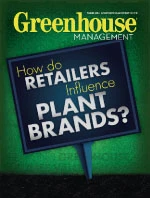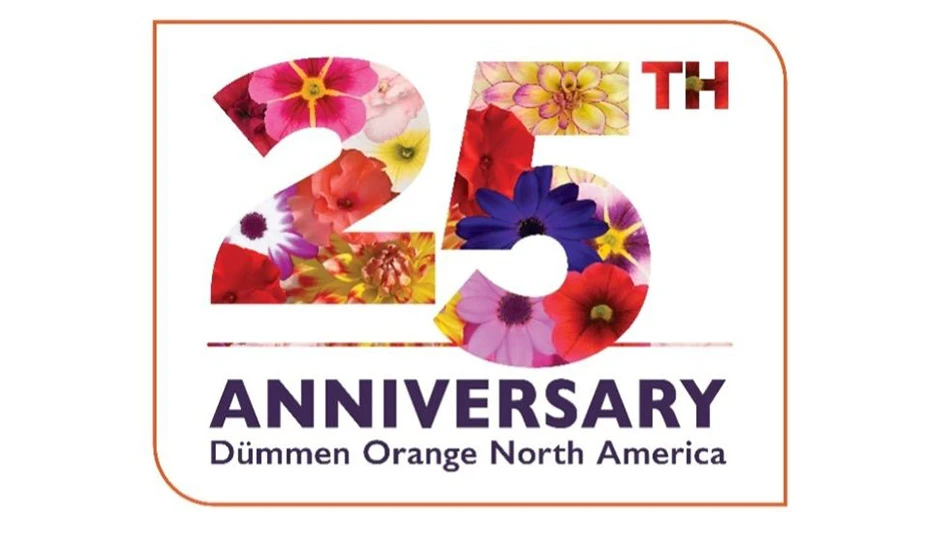| Horticultural Industries Leadership Awards On July 10 at the OFA Short Course in Columbus, Ohio, the GIE Horticulture Group honored representatives of all 50 states for their outstanding contributions to the horticulture industry and to their communities The recipients of the inaugural Horticultural Industries Leadership Awards represent all 50 states and several branches of the industry. Two of the National Winners come from the greenhouse segment of the industry. Stan Cope, president of Bonnie Plant Farm in Union Springs, Ala., received the national award for employee development. Ken Altman, owner of Altman Specialty Plants in Vista, Calif., received the national award for horticultural research. Bonnie Plant Farm employees are treated like family, not a number  With deep roots in the company and region, Stan Cope fosters community With deep roots in the company and region, Stan Cope fosters communityBonnie Plant Farm is arguably the largest greenhouse producer in the entire nation. Yet, walking around the company’s facilities, you get the feeling of a small community rather than a huge corporation. Employees take pride in their work and their company because they know they’re respected and treated well by supervisors. Bonnie Plant Farm produces vegetable starter plants and bedding plants sold primarily through chain stores nationwide. The company was founded, and headquarters remain, in Union Springs Ala., a city of about 4,000 people. The Bonnie brand is recognized across the country and is equated with quality. The company is also the nation’s largest producer of greenhouse crops grown in degradable pots. Chief executive Stan Cope is grandson of the founders Bonnie and Livingston Paulk. He was raised in Union Springs, so he has known many of the employees his entire life. This gives him a sense of responsibility toward them. For helping employees grow and fostering community, Cope is the inaugural winner of the GIE Media Horticultural Industries Leadership Award recipient in the Industry Excellence in Employee Development category.  Helping hand The best way to demonstrate the culture at Bonnie Plant Farm is through a real event. Terry Ross began work at Bonnie Plant Farm in 1982 as an hourly greenhouse worker. Through the years she worked up to greenhouse supervisor. But tragedy struck in 2003. Her daughter Brenda Mims and her mother Bernice Mims both died, and Ross was left to raise Brenda’s six children. Amongst this tragedy and grief, Bonnie Plant Farm stepped up. “They understood my situation and let me take off all the time I needed,” Ross said. “They let me know they understood my situation and it was not going to be a problem. “Other companies might say, ‘We need you here for so many hours or we’ll have to let you go,’ but not Bonnie Plant Farm. They know that if you’re missing for the right reasons and doing the right things, they’ll stand behind you.” Today the children are fine. Ross proudly reports one has graduated college, two are serving in the military, two have finished high school and one is finishing high school. “We did all of this with no other source of income but Bonnie Plant Farm, and from the help from Bonnie Plant Farm employees,” Ross said. Cope said Ross’ story reflects how the company strives to treat all employees. “Bonnie Plants has assisted many employees and their extended family members over the years during times of need,” Cope said. “We are extremely cognizant of human issues and hardships our employees face from time to time and we do our best to assist them with their specific needs.” A regular guy Cope does not come off as a CEO, and can usually be found mingling with employees. “He’s always approaching people and asking how we are doing. He’s a regular person,” Ross said. “If you didn’t know any better, you’d just think he was another worker. You wouldn’t think he was CEO.” Bonnie Plant Farm employs about 200 people in the community, and is the second largest employer in Bullock County. “I’ve lived in Alabama all my life, and have deep pride, absolute commitment and a strong feeling of great responsibility to my community and to all my employees,” Cope said. Bonnie Plant Farm is also quick to pitch in to help other communities in times of need. This spring, the company helped in relief and clean-up efforts after a string of tornadoes hit northern Alabama. Bonnie Plant Farm was also heavily involved with recovery efforts in 2005 after Hurricane Katrina struck Louisiana and Alabama. Pride in Bonnie “Bonnie Plants’ roots, in fact, do run deep and are connected to generations of families who have worked, and are still working for Bonnie,” Cope said. “Some employees have been with us over 30 years, and their sons and daughters have joined the ranks. “It is my belief that our employees are family in the truest sense of the word. They embody integrity, fairness, loyalty, kindness and a willingness to work together, often going above and beyond for the good of the company.” It’s Bonnie Plant Farm’s employees that keep the company striving, Cope said. “I am sure our employees are a key factor in our success and they represent one of our greatest assets,” Cope said. “I am grateful and honored to lead the Bonnie family, following always in the footsteps so firmly planted by my grandparents.” www.bonnieplants.com Research oriented  Ken Altman, owner of Altman Specialty Plants.Research results from the Center for Applied Horticultural Research are available to anyone in the horticulture industry. Ken Altman, owner of Altman Specialty Plants.Research results from the Center for Applied Horticultural Research are available to anyone in the horticulture industry.The Center for Applied Horticultural Research in Vista, Calif., will be celebrating its third anniversary in December. The brainchild of Ken and Deena Altman, owners of Altman Specialty Plants, the research facility is located on the grounds of the couple’s wholesale growing operation, San Diego division. The research center consists of a climate-controlled greenhouse with five separate rooms, a Quonset greenhouse, weather-monitoring equipment, a laboratory, a conference room and shade and sun outdoor areas. Research influences Ken Altman said there were three major influences in the decision to build the research center. “I have a close relationship with John Erwin at the University of Minnesota,” Altman said. “He has been coming here as a consultant and guide for a number of years. He has a really creative research mind. He can look at something and turn it into an experiment, something simple, that can be beneficial. I could see the benefits of research and I realized it was within our capacity.” Another influence in building the center was Ken Altman’s involvement as a board and committee member of the American Floral Endowment. Prior to his work with AFE, Ken had been a member of FIRST, which was responsible for awarding scholarships to university floriculture students. As chairman of the AFE education committee, Altman said the committee evaluates candidates for scholarships and industry internships. “I find the work that AFE members do to be really gratifying and important,” he said. “The main efforts go towards bringing awareness to the industry about the need to support research and then raise the money that will be used in universities and for scholarships. Currently there is about a $13 million endowment. We use the dividends to fund many important research projects and scholarships.” Another influence for Altman in deciding to build the Center was his visit to McCorkle Nurseries’ Center for Applied Nursery Research in Dearing, Ga. Launched in 1997, the nursery research center is located on 2 acres adjacent to McCorkle Nurseries. Altman said any large grower with an interest in research could do what his company has done. “It’s not impossible. Most large growers who would do something like this may not think about creating an industry resource. But they would benefit from a research center on their nursery, if they built and staffed one,” he said. “In our case, we decided that it would be of benefit to the entire industry and to let the industry know by publishing what we are doing.”  Local input Local inputWhen Altman made the decision to build the research center he worked with Erwin and University of California Extension agricultural advisor Jim Bethke to provide input as to the type of facility to construct. There is usually a monthly meeting called “Ask the Advisor” where Bethke or other experts discuss horticulture topics. The conference room is also available to other industry organizations that want to use it for meetings. Altman said that Bethke, who is the center’s educational advisor, has been helpful in writing research proposals. The center’s director, Lucia Villavicencio, encourages the submission of projects from growers, educational centers and allied companies. “Most of Lucia’s time goes into research that benefits the industry,” Altman said. “There is research on PGRs, nutrition, water management and more. The research is published on the center’s website. “Basically the center is there for the industry. It is also a great place for Altman Plants to do trials or to have things carefully documented.” www.altmanplants.com The 2011 Horticultural Industries Leadership Award Winners .jpg) .jpg) For more: Center for Applied Horticultural Research, www.cfahr.org. |

Explore the August 2011 Issue
Check out more from this issue and find your next story to read.
Latest from Greenhouse Management
- Flexible fungicides
- Super Charged Moon Juice from Moon Valley Nurseries now available nationally
- 2025 Proven Winners Horticulture Scholarship applications now open
- How to improve inventory and shipping management in the greenhouse
- Leading Women of Horticulture: Anna Ball, Ball Hort, and Terri McEnaney, Bailey Nurseries
- GM CEA HERB Part 2: A guide to increasing the sowing density of culinary herbs
- GM CEA HERB Part 1: Best practices for producing culinary herbs in controlled environments
- USDA fires experts on invasive pests, including Asian citrus psyllid, chilli thrips






